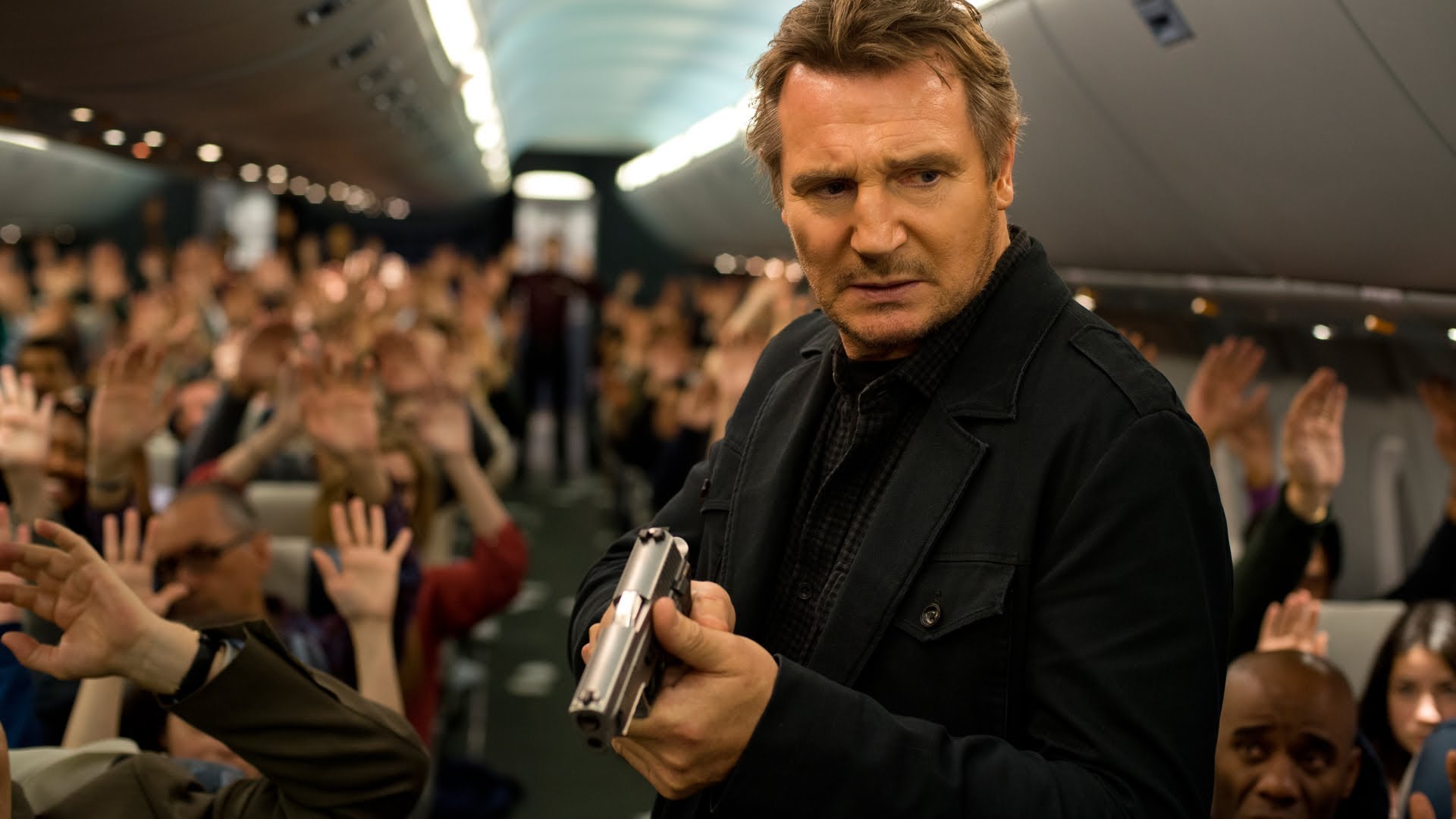
News
Summers Will Not Finish Semester of Teaching as Harvard Investigates Epstein Ties

News
Harvard College Students Report Favoring Divestment from Israel in HUA Survey

News
‘He Should Resign’: Harvard Undergrads Take Hard Line Against Summers Over Epstein Scandal

News
Harvard To Launch New Investigation Into Epstein’s Ties to Summers, Other University Affiliates

News
Harvard Students To Vote on Divestment From Israel in Inaugural HUA Election Survey
"Non-Stop" Falters
"Non-Stop"—Dir. Jaume Collet-Serra (Universal Pictures)—2.5 Stars

Liam Neeson may be the most convincing sexagenarian action star since Charles Bronson. In “Non-Stop,” he yells, runs, punches, and growls his way through a remarkably charismatic and consistent performance as alcoholic and down-in-the-dumps Federal Air Marshal Bill Marks. What could have been a tour-de-force for Neeson is bogged down, however, by a front-loaded and increasingly derivative script and overwrought direction from Jaume Collet-Serra. After Marks, en route to London on a packed flight, receives a text message that a passenger will be killed every 20 minutes if a large sum of money is not transferred to an offshore account, he uncovers an intricate frame-job that pins him as the terrorist. Initially, Collet-Serra creates a genuinely tense aura of suspicion as passengers begin to turn on Neeson and he becomes desperate. Eventually, however, the plot is reduced to a “Clue”-esque whodunit, complete with an ensemble cast of cardboard passenger stereotypes. While “Non-Stop” is kept partially afloat by Neeson’s powerhouse performance and its initial tension and humanity, it eventually spirals into a cheesy and only mildly satisfying second half.
The opening sequence of the film is indicative of its impressive potential. A buzzed Marks lumbers through the airport, the camera alternately tracking him and swooping into first-person. When showing Neeson’s point of view, the field—its edges and movements blurred in a telling representation of drunkenness—darts between sketchy characters to show Neeson’s devotion to keeping his passengers safe. Serra, when he wants to be, is a very effective visual storyteller. The brief glimpses into Neeson’s perspective establish his trustworthiness and make clear that, despite his numerous dependencies, he is exceedingly devoted to what he does. After Marks gets airborne and begins communicating with his tormentor over text, Collet-Serra and the effects team employ another engaging device: the texts, complete with real-time autocorrections, float across the screen. Giving the viewer access to the conversation creates a real-time tension that dramatically boosts the suspense. Other technical factors, including a taut score by John Ottman and exaggerated shaking and rattling to accompany turbulence, help create a stressful mood.
Collet-Serra complements his cinematic flourishes by avoiding the grating humorlessness of “Unknown,” his 2011 collaboration with Neeson, and not taking any of the conventions of the genre too seriously. Where that film was populated by icy, cynical characters, “Non-Stop” has many funny and warm elements. Several gags concern the texts, which have typos and mis-corrections that mimic the real world. Before the rising action gets too overwhelming, many of the passengers on the plane also offer telling societal critiques and quirks; one is paranoid about a Muslim passenger, while another is fixated on the attractive Italian jetsetter couple in front of him. Jen Summers (Julianne Moore), who sits next to Neeson’s character on the plane, is clever and kind even in the film’s most intense moments of peril. In addition to offering a number of giggle-worthy quips, her character is by far the most likable in the film and acts as its moral center during Marks’s more erratic moments. Moore avoids her potential for hysterics and delivers a measured performance.
The suspense and humor go well with each other until the passengers on the plane turn fully against Marks, who is reported on national news as being responsible for “a hijacking” despite his desperate attempts to prevent the killings. What was during the first half of the movie a deliberate and slow-burning nod to Hitchcock’s brand of coy and fun psychological thriller rapidly becomes a big and tacky “Me vs. Plane” debacle. Most of the issues surround the utter lack of inspiration in the writing of the other passengers. A maudlin subplot about a little girl on the plane reemerges in clichéd attempts at false sweetness. The stereotypical passengers, who suddenly play a far more integral role in the drama, are not at all up to the task. The New York cop, aspiring computer programmer, nerdy teacher, and myriad other potential suspects against Marks are unsympathetic and flimsy. Only Michelle Dockery, of “Downton Abbey” fame, offers some ensemble strength in her role as terrified flight attendant Nancy. By the time the creators of the impossibly intricate hijacking plan are revealed, it’s difficult to care.
Even the writing for Neeson, which requires little more than a classic “hard boiled-cop” vibe—he’s magnetic enough to do the rest—becomes overly simplistic and relies on a truly laughable deus ex machina. Although some of the late-game effects—including a riveting emergency landing that rivals that of “Flight” in terms of effects and power—partially redeem the tired script, explosions and bombast can’t shake off poor writing. Neeson certainly doesn’t slow down, but the movie can’t sustain its energy.
Want to keep up with breaking news? Subscribe to our email newsletter.
